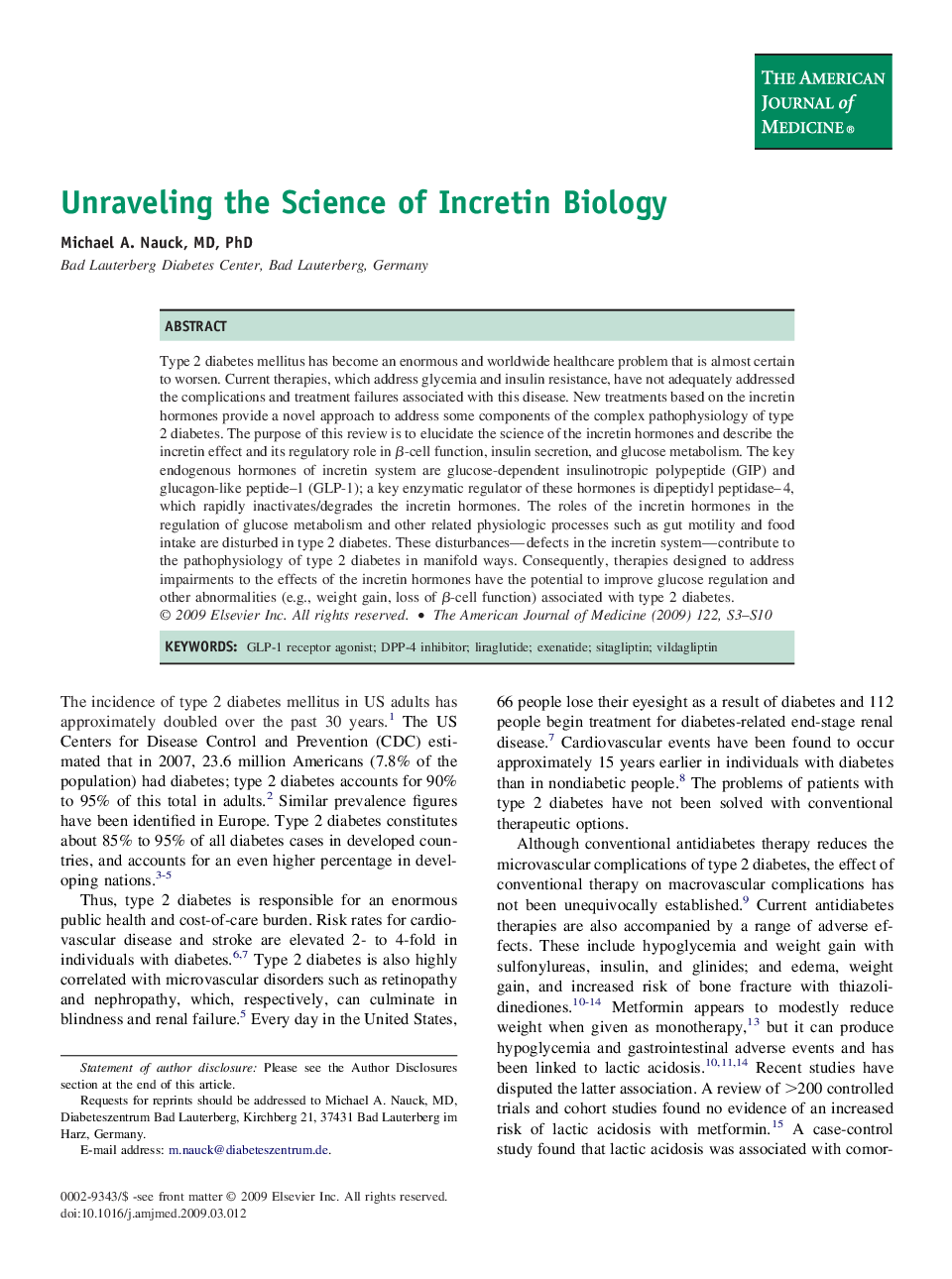| Article ID | Journal | Published Year | Pages | File Type |
|---|---|---|---|---|
| 2725678 | The American Journal of Medicine | 2009 | 8 Pages |
Type 2 diabetes mellitus has become an enormous and worldwide healthcare problem that is almost certain to worsen. Current therapies, which address glycemia and insulin resistance, have not adequately addressed the complications and treatment failures associated with this disease. New treatments based on the incretin hormones provide a novel approach to address some components of the complex pathophysiology of type 2 diabetes. The purpose of this review is to elucidate the science of the incretin hormones and describe the incretin effect and its regulatory role in β-cell function, insulin secretion, and glucose metabolism. The key endogenous hormones of incretin system are glucose-dependent insulinotropic polypeptide (GIP) and glucagon-like peptide–1 (GLP-1); a key enzymatic regulator of these hormones is dipeptidyl peptidase–4, which rapidly inactivates/degrades the incretin hormones. The roles of the incretin hormones in the regulation of glucose metabolism and other related physiologic processes such as gut motility and food intake are disturbed in type 2 diabetes. These disturbances—defects in the incretin system—contribute to the pathophysiology of type 2 diabetes in manifold ways. Consequently, therapies designed to address impairments to the effects of the incretin hormones have the potential to improve glucose regulation and other abnormalities (e.g., weight gain, loss of β-cell function) associated with type 2 diabetes.
